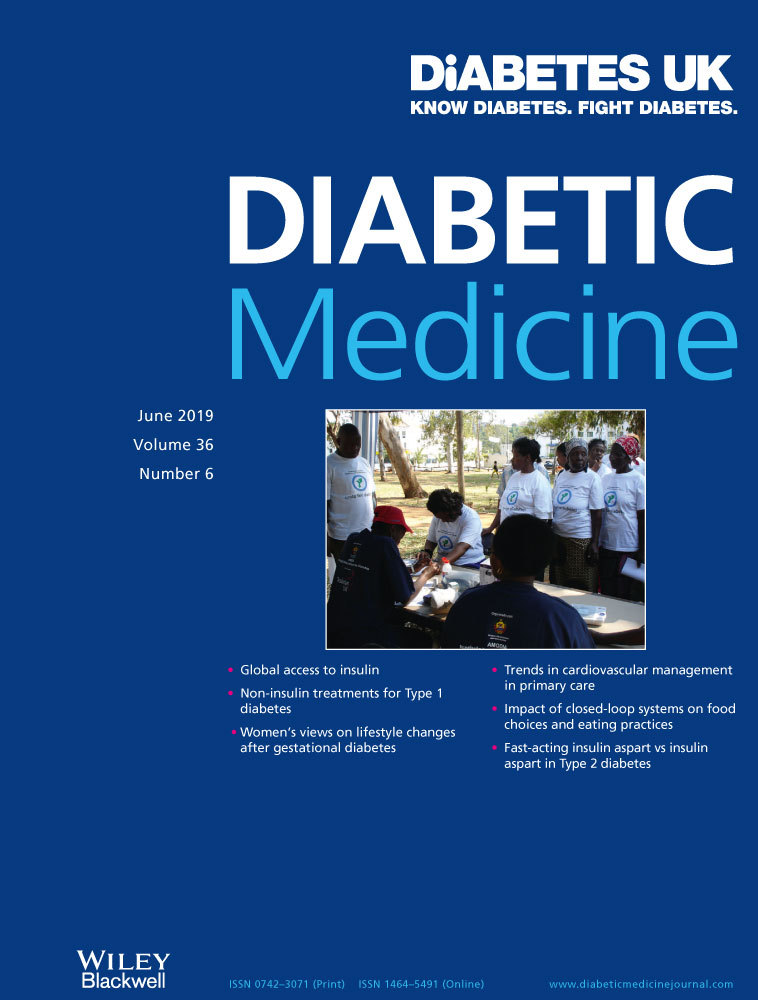Exploring organizational support for the provision of structured self-management education for people with Type 2 diabetes: findings from a qualitative study
Abstract
Aim
To explore the organizational context in which Type 2 diabetes structured group education is provided.
Methods
Four Clinical Commissioning Groups in England providing Type 2 diabetes structured self-management education participated in a qualitative study exploring the context for provision of that education. Using UK National Diabetes Audit returns, two Clinical Commissioning Groups were selected that had non-attendance rates of ≤25%, and two that had non-attendance rates of ≥50%. Between May 2016 and August 2017, 20 interviews were conducted with Clinical Commissioning Group staff including: commissioners, healthcare professionals, managers, general practitioners and diabetes educators. Data gathering was prolonged as it proved challenging to engage with healthcare staff as a result of frequent local restructuring and service disruption.
Results
Local audits revealed discrepancies in basic data such as referral and attendance numbers compared with national audit data. There was a commonality in the themes identified from interviews: diabetes education was rarely embedded in service structure; where education uptake was poor, a lack of central support to delivery teams was noticeable; and where education uptake was positive, delivery teams were actively engaged, sometimes relying on enthusiastic individuals. Both situations put the local sustainability of diabetes education at risk.
Conclusions
There appears to be a link between attendance rates and organizational issues, therefore, when considering how to increase attendance rates, the state of the diabetes education infrastructure should be reviewed. Good uptake of diabetes education can be too reliant on the enthusiastic commitment of small teams or individuals delivering the education.




